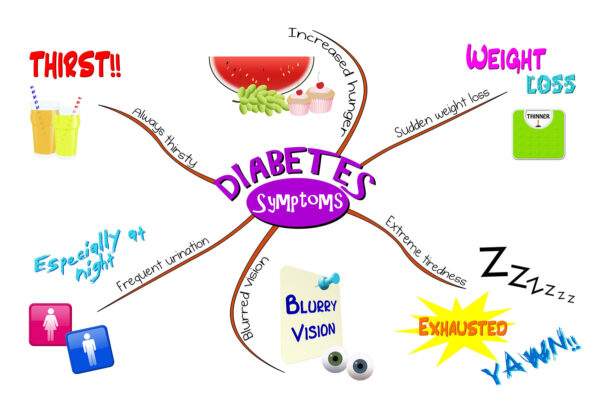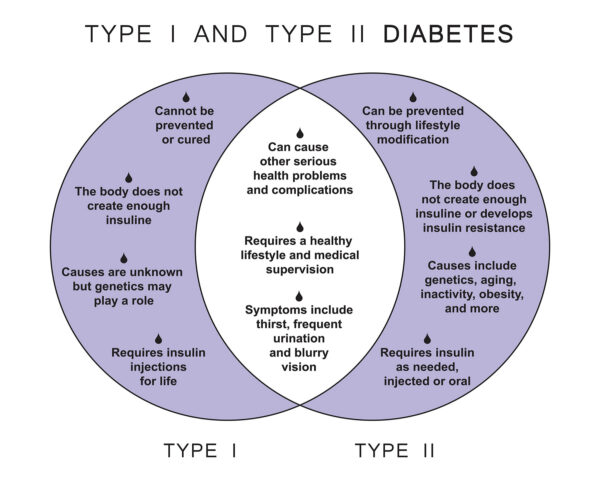Diabetes is a complex metabolic disorder that can affect individuals of any age, from children to seniors. Understanding the different types of diabetes, their potential causes, and effective management strategies is crucial for individuals and healthcare providers. In this article, we explore diabetes onset at any age, shedding light on the various types, potential causes, and management approaches that apply to individuals across the lifespan.
Types of Diabetes
- Type 1 Diabetes: Often diagnosed in childhood or adolescence, type 1 diabetes is an autoimmune condition where the immune system attacks and destroys the insulin-producing cells in the pancreas. People with type 1 diabetes require lifelong insulin therapy.
- Type 2 Diabetes: Type 2 diabetes is the most common form and can develop at any age, although it is more prevalent in adults. It is characterized by insulin resistance, where the body’s cells do not respond effectively to insulin, and the pancreas may not produce enough insulin.
- Gestational Diabetes: This type of diabetes occurs during pregnancy and can affect women of any age during their pregnancy. It usually resolves after childbirth, but it increases the risk of type 2 diabetes later in life.
- LADA (Latent Autoimmune Diabetes in Adults): LADA is a form of autoimmune diabetes that appears in adulthood. It shares similarities with both type 1 and type 2 diabetes and often progresses slowly, initially not requiring insulin.
Causes and Risk Factors
- Genetics: A family history of diabetes can increase the risk of developing the condition, regardless of age.
- Lifestyle Factors: Sedentary lifestyles, poor dietary habits, and excess body weight are significant risk factors for type 2 diabetes and can contribute to diabetes onset at any age.
- Autoimmune Factors: Autoimmune reactions can trigger type 1 diabetes, often appearing in childhood or adolescence.
- Hormonal Changes: Pregnancy-related hormonal changes can lead to gestational diabetes.
Management Approaches
- Type 1 Diabetes Management: Individuals with type 1 diabetes require insulin therapy to manage blood sugar levels. Advances in insulin delivery methods, such as insulin pumps and continuous glucose monitoring systems, have improved diabetes management for all age groups.
- Type 2 Diabetes Management: Lifestyle changes are often the first line of treatment for type 2 diabetes, including dietary modifications and regular physical activity. Medications and insulin therapy may be prescribed when necessary.
- Gestational Diabetes Management: Monitoring blood sugar levels, following a balanced diet, and maintaining a healthy weight are key components of managing gestational diabetes during pregnancy. Postpartum monitoring is essential to assess the risk of type 2 diabetes.
- LADA Management: LADA treatment may begin with lifestyle modifications and oral medications. Over time, many individuals with LADA will require insulin therapy.
Prevention and Lifestyle Choices
Regardless of the type of diabetes or age of onset, certain lifestyle choices can reduce the risk and aid in diabetes management:
- Eating a balanced diet rich in whole grains, fruits, vegetables, and lean proteins.
- Engaging in regular physical activity to maintain a healthy weight and improve insulin sensitivity.
- Monitoring blood sugar levels as directed by a healthcare provider.
- Managing stress levels, as stress can affect blood sugar control.
Conclusion: A Lifelong Journey of Diabetes Management
Diabetes can affect individuals of any age, and effective management is essential to maintain health and prevent complications. Understanding the types, causes, and management approaches for diabetes onset at any age empowers individuals and healthcare providers to work together in managing this chronic condition. Regardless of when diabetes is diagnosed, with the right knowledge and support, individuals can lead fulfilling lives while effectively managing their diabetes.






